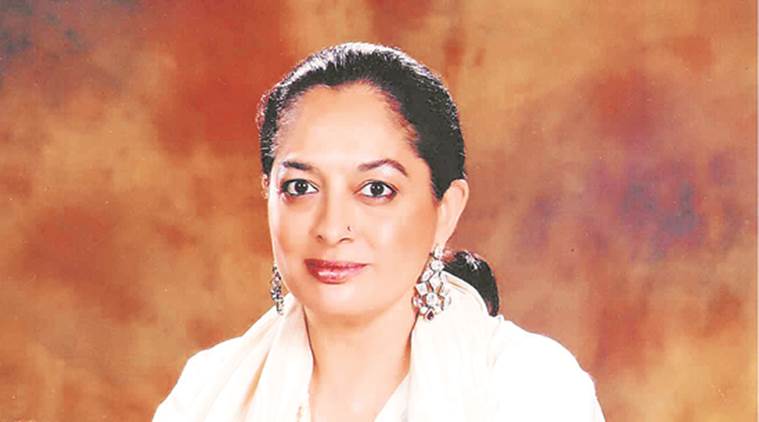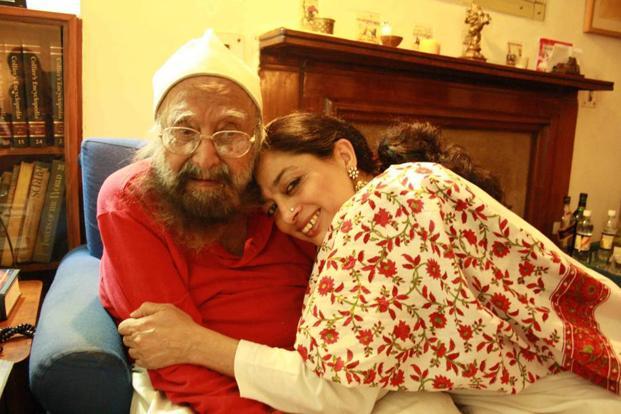NEW DELHI :
Sadia Dehlvi, master storyteller who chronicled capital, dies at 62

Of all the roles that 62-year-old Sadia Dehlvi played in her life, the one she mastered was that of a storyteller. From her childhood memories, she dug out stories of “nihari Sundays” at home, the jinns that inhabited Shama Kothi where the Dehlvis lived, and the family’s contribution to society in the form of the iconic Urdu and Hindi magazines called Shama and Sushma.
On Wednesday night, Dehlvi — author, activist and food connoisseur — passed away after a long battle with cancer. She had been admitted to the hospital for a few days, and on August 1, her son Arman Ali Dehlvi posted a “cancer treatment fundraiser request” for his mother on social media. A close friend of Dehlvi’s said she passed away at home on Wednesday night.
Activist John Dayal, who also knew Dehlvi’s father, told The Indian Express , “I wished her on her birthday in June, she was fighting cancer so bravely. Her family contributed immensely to the syncretic culture of the city, and so did she. She popularised Mughal cuisine with her writing.”
City chronicler Rana Safvi recalled several meetings with Dehlvi at the Nizamuddin Dargah. Safvi said, “I love her writing, especially her book The Sufi Courtyard: Dargahs of Delhi. I used to often see her at the Dargah… With her gone, the dargahs will feel empty.”
Apart from The Sufi Courtyard, Dehlvi also wrote Sufism: The Heart of Islam in 2009, and Jasmine and Jinns: Memories and Recipes of My Delhi in 2017. She also scripted the hugely popular TV show, Amma and Family, starring Zohra Sehgal. Dehlvi founded Al Kauser, the restaurant in Chanakyapuri, with her mother in 1979.
In 2017, she had told The Indian Express, “Al Kauser was the first roadside kebab shop in New Delhi. It became quite the rage in the ’80s and ’90s. The kitchen was in our house.”
The Dehlvis, who were essentially traders, moved to Delhi in the early-17th Century and took the name “Dehlvi”, which means “the one from Dehli (Delhi),” said writer Sohail Hashmi. “The family started publishing Shama, one of the first Urdu magazines on Hindi cinema, which also served as a quasi-literary magazine. Then came Sushma, a magazine in Hindi. Actor Dilip Kumar was a patron of the magazines,” he said.
Dehlvi was also a close friend of celebrated author Khushwant Singh, who dedicated his book Not a Nice Man to Know to her.
Later, Dehlvi produced a television serial called Not A Nice Man to Know, in which Singh was the anchor.
source: http://www.indianexpress.com / The Indian Express / Home> Books and Literature / by Somya Lakhani / New Delhi / August 06th, 2020









